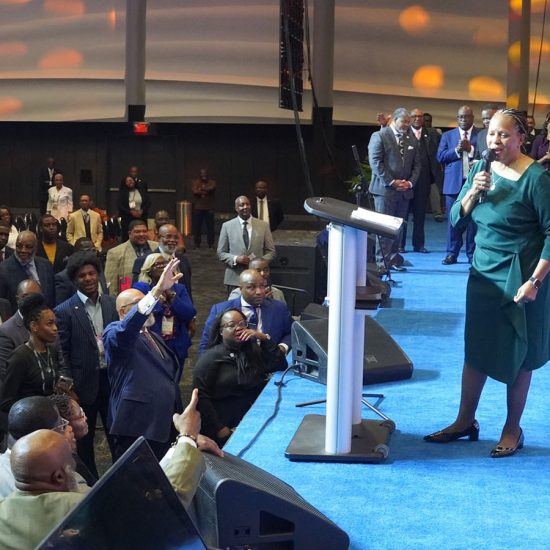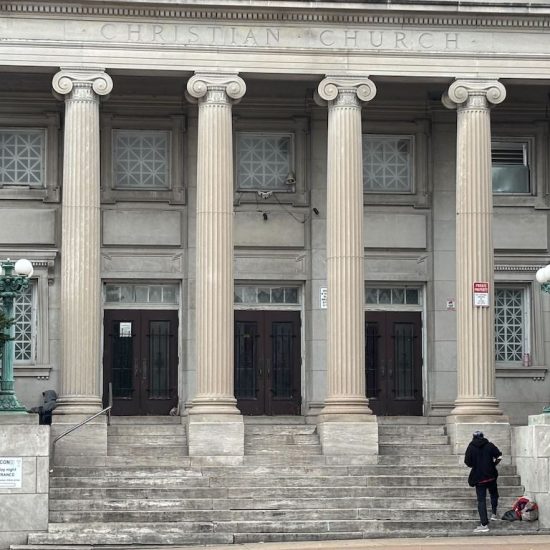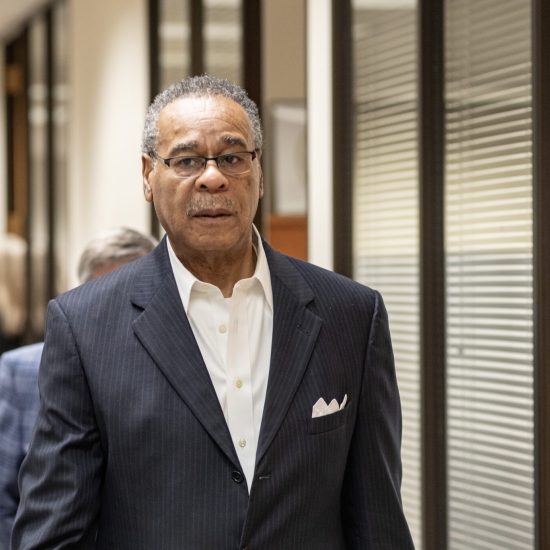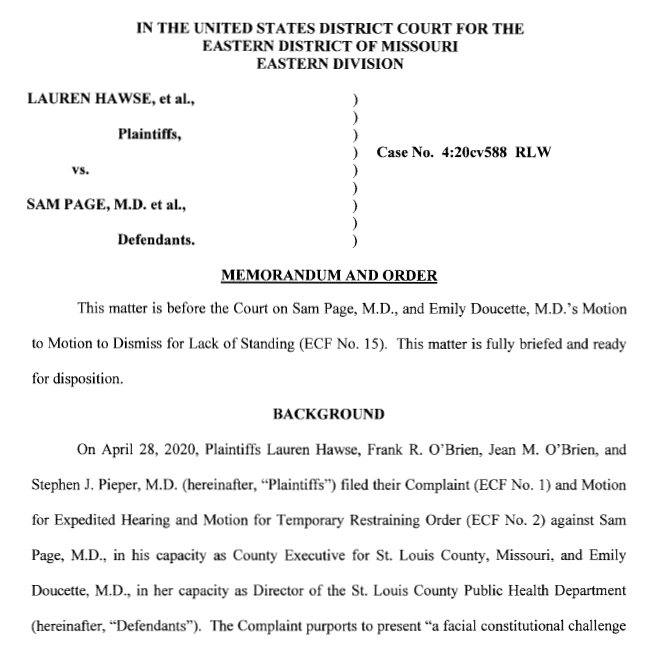
A federal judge on Monday (May 11) dismissed a legal challenge by a group of Catholics in St. Louis, while a similar challenge in Kansas City by a Baptist church is moving toward a hearing on Friday. Both suits challenge local restrictions designed to prevent the spread of coronavirus in the two hardest-hit regions of Missouri.
As of May 13, more than 4.4 million people globally have been infected with the COVID-19 respiratory disease caused by coronavirus, and more than 296,000 have died. In the U.S., the nation with the most infections and deaths, more than 1.4 million people have tested positive and 84,000 have died.
On April 28, four Catholic laypersons sued officials in St. Louis County over a stay-at-home order that limits religious gatherings to no more than 10 people. The plaintiffs argued that the rules were “extreme” and a “hysteria-driven overreaction.” And they claimed it was unconstitutional to ban religious gatherings when some commercial activities are allowed.
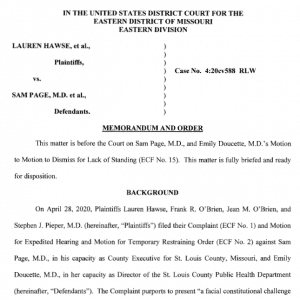
The start of Judge Ronnie White’s ruling in the lawsuit challenging St. Louis County’s coronavirus restrictions on the size of church gatherings.
On May 11, U.S. District Court Judge Ronnie White granted the defendants’ request for a dismissal of the case. White rejected the religious discrimination arguments raised by the plaintiffs, writing that the county’s order “does not mandate the closure of religious places of worship” but instead limits religious activities to 10 people.
White also noted the lawsuit didn’t offer important details, like which churches the plaintiffs actually attend or why those churches closed in the first place (from a government order or voluntarily in response to the outbreak). Additionally, since the plaintiffs aren’t the decisionmakers for reopening their churches, White noted the lawsuit lacked any indication that if he blocked the country’s order that the plaintiffs’ churches would actually resume in-person services.
As a result of those flaws, White ruled the plaintiffs lacked proper standing to challenge the county’s order. The same day as the dismissal, the plaintiffs filed an appeal to the U.S. Court of Appeals for the Eighth Circuit. That court hasn’t yet acted on the case.
Across the state, Abundant Life Baptist Church in the Kansas City suburb of Lee’s Summit sued Jackson County officials on May 7, claiming local rules discriminated against churches by allowing restaurants and retail stores to allow more people that houses of worship. Churches are treated like other gatherings in the county, and are given more freedom than several other categories of venues.
Rather than being limited to just 10 persons for an in-person gathering, the church wants to able to bring in up to 10% of its building’s occupancy. The church claims in a May 12 filing that “there is no difference, from a public health standpoint,” between individuals visiting a store and people gathering for a church service.
“Nothing about the church’s religious practices makes praying less safe than paying,” the church added in the court filing.
However, people generally do more than just pray in most religious gatherings. Church services across the country have sparked dozens of virus hotspots, including in Arkansas, California, Georgia, Illinois, Kansas, Kentucky, and Washington — as well as in several other countries. And there are growing concerns about the potential of church services to spread the coronavirus through practices like singing that can even render recommended social distancing practices insufficient.
The May 12 filing by the church cites as justification for its position the statewide stay-at-home order issued on April 3 that expired a month later. In that order, Governor Mike Parson, a Baptist, allowed essential retail stores to admit a number of people based on square footage. However, the church’s filing wrongly suggests that square footage formula applied to houses of worship. Instead, Parson’s order limited houses of worship to gatherings of no more than 10 persons — a standard he adopted only after questioning by Word&Way.
The church requested a temporary restraining order to block the county’s rules while the case is considered. The church also requested an expedited hearing on “an emergency basis” since the church hopes to hold in-person services on May 17. On Tuesday (May 13), U.S. District Court Judge Roseann Ketchmark scheduled a video conference for May 15 to hear arguments in Abundant Life’s request for a temporary restraining order.
Like the other case in Missouri, similar lawsuits across the country challenging mass gathering bans impacting in-person religious services have mostly failed to find support from judges. Courts have also denied challenges by religious plaintiffs in California, Illinois, Kentucky, Maine, New Hampshire, and Virginia, while judges in Kansas and a second case in Kentucky granted temporary injunctions to block orders limiting the size of church services. Several of those cases have involved Baptists as plaintiffs, including in Illinois, Kansas, Kentucky, and New Hampshire.
A recent poll found that 48% of Americans say church services shouldn’t be allowed right now because of the potential of spreading coronavirus, while 42% believe they should be allowed with restrictions, and just 9% think they should be allowed without restrictions.


